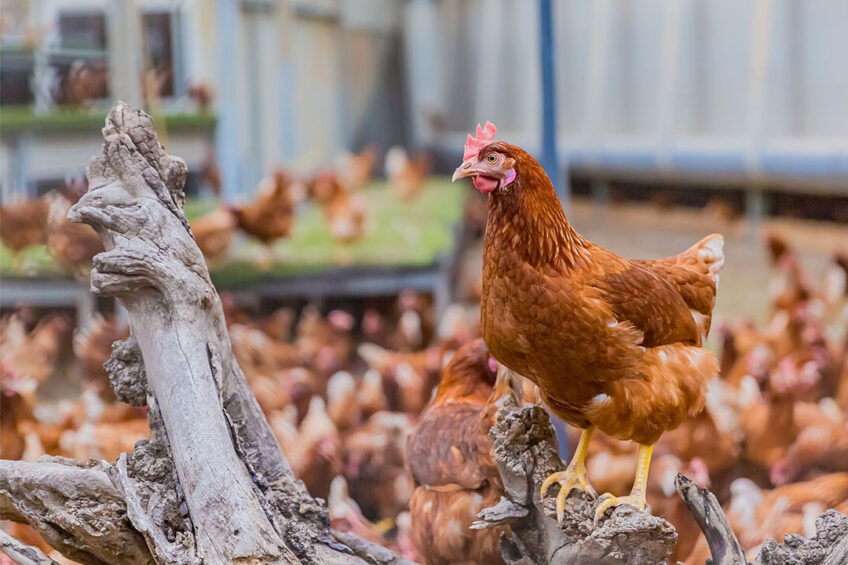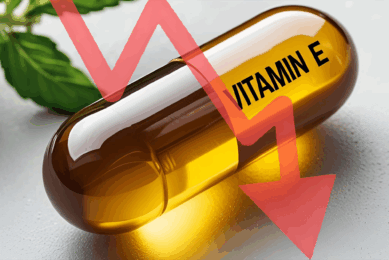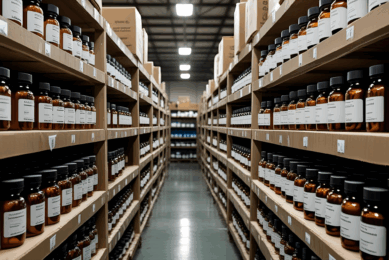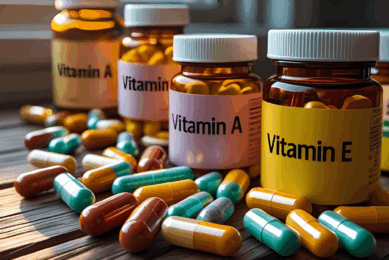The role of Vitamin A in poultry nutrition

This article discusses the impact of various dietary levels of vitamin A on immune function, antioxidant capacity, reproductive performance, feed intake and the growth performance of poultry.
Vitamin A is essential in poultry diets. Correct timing and dosage of vitamin A maximises bird health and performance. This article sheds light on the role and impact of Vitamin A in poultry nutrition.
Vitamin A is a fat-soluble vitamin which is critical for health, performance and immune function. However, vitamin A cannot be synthesised in the body and must be obtained through diet. Vitamin A deficiency results in developmental abnormalities, pathological changes in the skin and mucosa, vision impairments and reproductive disorders.
In addition, there is a great deal of variation in the vitamin A requirements of poultry based on their physiological state, age and health.
The impact of vitamin A on immune function
As Vitamin A modulates the immune system function, it is known as ‘the anti-infective vitamin’. Adequate amounts of vitamin A promote the differentiation of regulatory T cells, modulate cytokine production, and enhance innate immune cell activity. In addition, vitamin A affects the expression of genes responsible for immune system regulation.
It has been shown that dietary supplementation of vitamin A in the form of retinyl acetate at a level of 12,000 IU per kg of feed improves the immune function of laying hens. However, the amount of vitamin A required for optimal immune function under heat and vaccination stress is higher. Another study showed that dietary supplementation of vitamin A at a dose of 8,000 IU per kg diet improves the immune response of White Leghorn chickens infected with infectious bronchitis virus. It is also clear that dietary vitamin A improves antibody production and T cell proliferative response in broilers exposed to Mycobacterium tuberculosis.
Furthermore, higher levels of vitamin A intake are associated with elevated serum levels of immunoglobulin A and G, indicating an enhanced immune response.
Broilers fed vitamin A have a higher relative bursa of Fabricius ratio, indicating an enhancement in immune function. However, excessive supplementation of vitamin A could negatively affect immune system function.
The impact of vitamin A on antioxidant capacity
In poultry, exposure to environmental stressors, inadequate elimination of free radicals and diseases result in a build-up of reactive oxygen species. When the generation of reactive oxygen species surpasses the ability of the birds to counteract or eliminate them, this leads to detrimental effects on performance and disease resistance.
Vitamin A alleviates heat, cold and vaccination stress-related depression in poultry performance. From research it appears that dietary supplementation with 15,000 IU of vitamin A per kilogramme of feed improves performance and reduces oxidative stress markers in heat-stressed broilers. In addition it is shown that Vitamin A upregulates genes encoding antioxidant enzymes and bolsters the cellular antioxidant capacity, thus neutralising harmful reactive oxygen species. In addition, vitamin A reinforces cellular defense mechanisms against oxidative stress in poultry.
The impact of vitamin A on reproductive performance
Vitamin A, which is an essential micronutrient for reproductive processes in both males and females, regulates gonadal development and sexual differentiation in poultry. Vitamin A affects the synthesis and secretion of reproductive hormones by modulating the activity of the hypothalamic-pituitary-gonadal axis.
Furthermore, vitamin A metabolites contribute to the maintenance of reproductive tissues and their functional integrity, and supports the proliferation and differentiation of germ cells within the testes and ovaries, thus ensuring the continuous production of viable gametes.
Research shows that supplementing higher levels of vitamin A up to 16,000 IU per kg in breeding and laying hens improves a variety of reproductive performance parameters such as egg weight, egg number, egg mass, egg yield, fertility or albumen quality.
It has also been shown that dietary supplementation of vitamin A up to 21,600 IU per kg of feed improves broiler breeder fertility and reproductive organ development by regulating the expression of ovarian hormone receptors. However, studies have also shown that the maximum amount of vitamin A that broiler breeders can tolerate is 35,000 IU per kg, so excessive supplementation could negatively affect reproduction performance.
The impact of vitamin A on feed intake and growth performance
It appears that raising vitamin A levels from 3000 to 9000 IU per kg of feed increases feed intake in heat-stressed laying hens. Also, feeding carotenoid to layers and ducks enhances feed conversion ratio, body weight gain and growth performance.
In broilers, higher dosages of vitamin A result in superior weight growth and performance levels due to enhanced nutritional digestibility. However, excessive vitamin A may interfere with vitamin D3 absorption and alter bone formation, resulting in a loss in weight and performance. In addition, vitamin A supplementation in broilers positively affects wooden breasts, white striping and meat color.
Vitamin A supplementation mitigates oxidative stress, maintains optimal antioxidant levels, enhances reproductive performance and improves immunity in poultry. However, excessive vitamin A supplementation may have negative effects on reproductive performance, liver function and immunity. Further research is required to explore the role of vitamin A in poultry physiology, optimise feed supplementation and investigate potential interactions with other feed components.
This article is based on the publication: Pros and Cons of Dietary Vitamin A and Its Precursors in Poultry Health and Production: A Comprehensive Review. Antioxidants 2023, 12, 1131.











